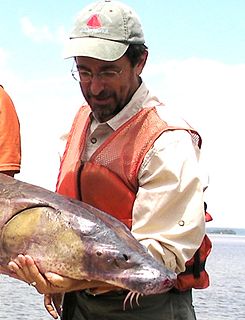A Quote by Emily Calandrelli
In the grand scheme of things, polar bears are the least of our problems when it comes to climate change.
Related Quotes
It's Earth Day today. Let me tell you something about polar bears. They're endangered but you have to be careful because a polar bear is one of the few animals that will stalk a human. If you go to where polar bears live, it might stalk you and when you're on the plane going home, it might be behind you reading.
Listing the polar bear under the Endangered Species Act could harm bear conservation efforts by eliminating revenues from the carefully-regulated sport hunting of polar bears by Americans and the importation of polar bear meat and trophies into the U.S. As hunting by non-Americans would replace hunting by Americans, nothing would be accomplished in terms of reducing the number of polar bears killed, but the revenue currently generated by American sport hunters for conservation and research efforts would be eliminated.
Polar bears did very well in the warmer times. They didn't die out at all; they didn't die out in the last 10,000 years, nor during the previous interglacial, nor the one before that. So, they're just used as a deceitful heartthrob; you know, to pluck your heartstrings because the polar bears might die out.
Another way to test hypotheses about adaptation is to consider trait variation across a group of species instead of focusing on the trait of a single species. Rather than seeking to explain why polar bears have fur of a certain thickness, one tries to explain why bears in colder climates have thicker fur than bears in warmer climates. The former problem is hard to solve, since it is hard to say exactly what fur thickness polar bears should have if natural selection guided the evolution of that trait.
The metaphor I routinely use is polar bears in the Sahara desert. You take creatures adapted to the cold and put them in the heat, the very traits that allow them to survive in one environment will conspire against them in the other. We are polar bears in the Sahara with one important distinction: we are smarter than the average bear. Once we identify the nature of the problem, we can think our way out of it. But it begins by acknowledging you didn't fail because you couldn't succeed. Because you didn't even know what the scope of the problem was. It's not your fault.




































